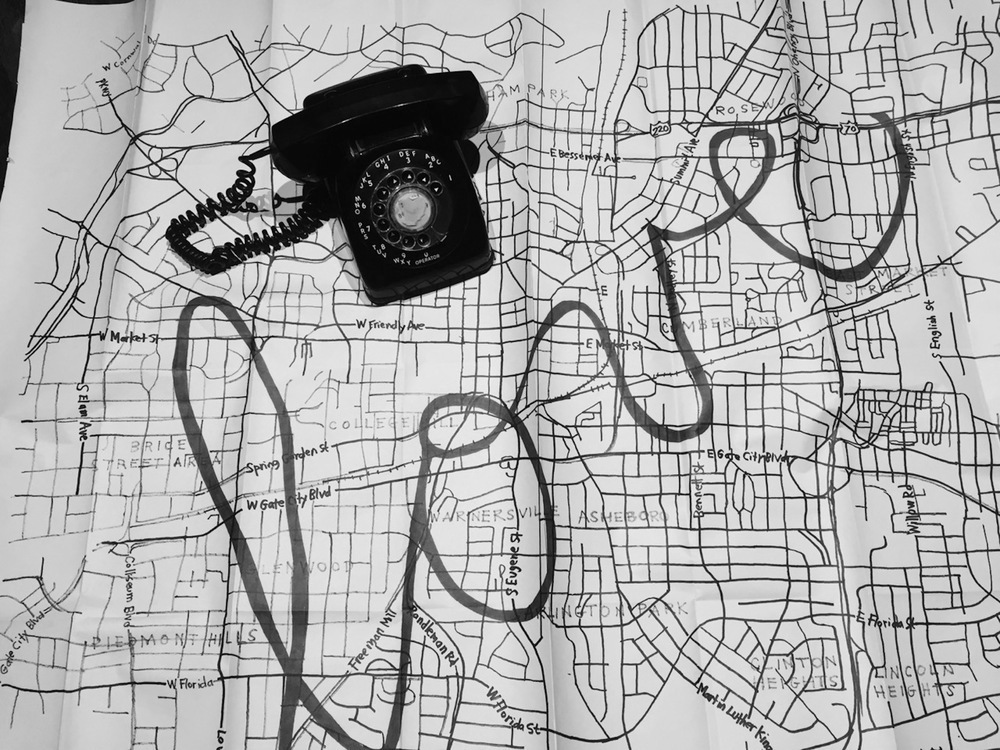
LOVE LINE, 2020
first performed on February 22, 2020
on streets across Greensboro
performed once in 2020
A K MIMI ALLIN
Brattleboro, VT
517112086m517112086i517112086m517112086i517112086a517112086l517112086l517112086i517112086n517112086@517112086g517112086m517112086a517112086i517112086l517112086.517112086c517112086o517112086m
akmimiallin.weebly.com/
LOVE LINE, 2020
A K MIMI ALLIN
I looped L—O—V—E in cursive letters in a 20-mile path across Greensboro, NC, blazing a new footpath with an old rotary telephone, collecting voices from people on the street, short messages of LOVE, encouragement and friendship, activating and engaging in discourse with the community. My phone, selected from the Elsewhere Museum collection as an object that embodies the idea of LOVE, was rigged to play these messages back through the receiver. As I moved over class and race lines, I sought to question divisions and decades of privilege. Given our current political crisis, LOVE has become yet again a radical form of resistance against dominant culture. “Love Line, 2020” was an attempt to create a new space dedicated to the enactment of LOVE, a heterotopia between the everyday and the other spaces of LOVE. I sought to make this space visible by inviting citizens from every district to contribute to the re-coding of space by expressing and listening for LOVE. If LOVE, as a cultural expression and tool for community building, is excluded from the landscape, we must dedicate ourselves to creating space for it. I passed messages of love from resident to resident for one month.
The “L” is a 10-mile walk. It begins in Glenwood, crosses the railroad tracks, heads north through the UNCG campus and loops around Sunset Hills with its trekkers, athletes, dog walkers and tidy green lawns, eventually heading back to Glenwood with its one story houses, chain link fences, housing projects, people working on cars, carrying groceries, sitting in yards, dogs, chickens, roosters and muscle cars.
“Love Line, 2020” is about re-orientating, listening and re-examining our part in perpetuating oppressive systems. In an effort to integrate into the community, I prepared meals with the Interactive Resource Center, joined the YMCA and attended Beloved Community Center meetings. Greensboro is where the first sit-ins challenged segregation in 1960. Where, in 1979, an armed caravan of KKK leaders confronted a group of peaceful, unarmed protestors, leaving five dead and ten wounded. These days Greensboro is undergoing a process of gentrification. Can LOVE help? As one resident offered, “I need your love as much as you need mine. We are one family, one being, and I love you.”